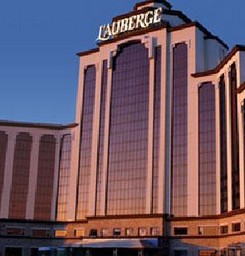 Louisiana has both a long historical attachment to gambling enterprise and a recent one as well. Louisiana was a critical part of early gambling history in the United States, as New Orleans was the site of many clandestine dens of games when Andrew Jackson led the national military forces against the British redcoats in the battle named for the Crescent City in 1815. In 1828, John Davis opened what has been considered the first real casino in the United States at the corner of Bourbon and Orleans Streets. Following the Civil War, a well-bribed state legislature authorized the infamous Louisiana Lottery Company. The company began to sell tickets throughout the United States. It continued operations until 1895, after federal laws prohibited its use of the mail system. In the early 1900s all gambling was technically illegal, but gambling continued. Slot machines were openly played through the 1930s. Gambling clubs kept operating even as Sen. Estes Kefauver’s Senate committee on organized crime targeted the state for enforcement activities. In the meantime gambling on horse races had been legalized.
Louisiana has both a long historical attachment to gambling enterprise and a recent one as well. Louisiana was a critical part of early gambling history in the United States, as New Orleans was the site of many clandestine dens of games when Andrew Jackson led the national military forces against the British redcoats in the battle named for the Crescent City in 1815. In 1828, John Davis opened what has been considered the first real casino in the United States at the corner of Bourbon and Orleans Streets. Following the Civil War, a well-bribed state legislature authorized the infamous Louisiana Lottery Company. The company began to sell tickets throughout the United States. It continued operations until 1895, after federal laws prohibited its use of the mail system. In the early 1900s all gambling was technically illegal, but gambling continued. Slot machines were openly played through the 1930s. Gambling clubs kept operating even as Sen. Estes Kefauver’s Senate committee on organized crime targeted the state for enforcement activities. In the meantime gambling on horse races had been legalized.
The modern era of legalized Louisiana gambling began in 1990 when the legislature gave the green light for the start of a new state lottery. In 1990 an act was also passed that opened the door for Native American casinos. In 1991 riverboat casino gambling was approved along with video poker machines for truck stops, race courses, restaurants, and taverns. The next year authorization was granted for a single land-based casino in New Orleans.
There are now multitudes of gambling sites in the state. Lottery tickets and charitable bingo games are in each parish. Video gaming machines are widely dispersed throughout the state. In 1966, however, the voters of each parish were empowered to vote on whether there would be machine gaming in their parish – at casinos, tracks, truck stops, or restaurants. About half of the parishes said “take out the machines”, although none of the casino parishes voted against the machines. One parish with a track said no to the machines. Machines were removed from the parishes objecting to them in 1999.
Louisiana has three Native American casinos. The largest, at Marksville (Tunica-Biloxi tribe) and Kinder (Alabama-Coushatta tribe), were originally constructed and operated by Grand Casinos. The third casino is near Charenton and is run by the Chitamacha tribe. Fifteen riverboat casino licenses have been granted, as has the license for the New Orleans casino. The New Orleans casino project opened in a temporary facility, however, and failed to generate sufficient revenue flows. The project for a permanent casino was put on hold for three years as the operators sought the protection of the bankruptcy court. The permanent facility was opened at the end of 1999. Several of the riverboats operations have also experienced failure and have seen licenses withdrawn and given to new vessels.
Louisiana has suffered from having considerable competition for its gambling patronage. Louisiana does not exist in a vacuum. Many gaming opportunities are available to residents in adjacent jurisdictions. Texas offers lottery sales and racetrack betting and also has had machine gaming in truck stops – although prizes were awarded in the form of merchandise, not cash. Mississippi has a wide array of casinos. A major Native American casino is in the central part of the state. Several casinos are located in Tunica, a northern Mississippi county near Memphis, Tennessee. Others are located in cities on the Mississippi River. The largest casinos are found on the Gulf Coast within a hundred miles of New Orleans. A considerable portion of the patronage of Mississippi casinos comes from Louisiana.
But patronage and revenue do not constitute the major problem with Louisiana gambling. Patterns of public corruption that seem endemic in the state’s history came to the fore once again as licensing of gaming facilities and distribution of gaming equipment began. One governor, Edwin Edwards, was linked to a system of bribery involving several casino license holders. He was convicted and in 2001 is awaiting a prison term while appealing his case. Also, an organized crime ring was tied to persons distributing slot machines around the state.
|
|